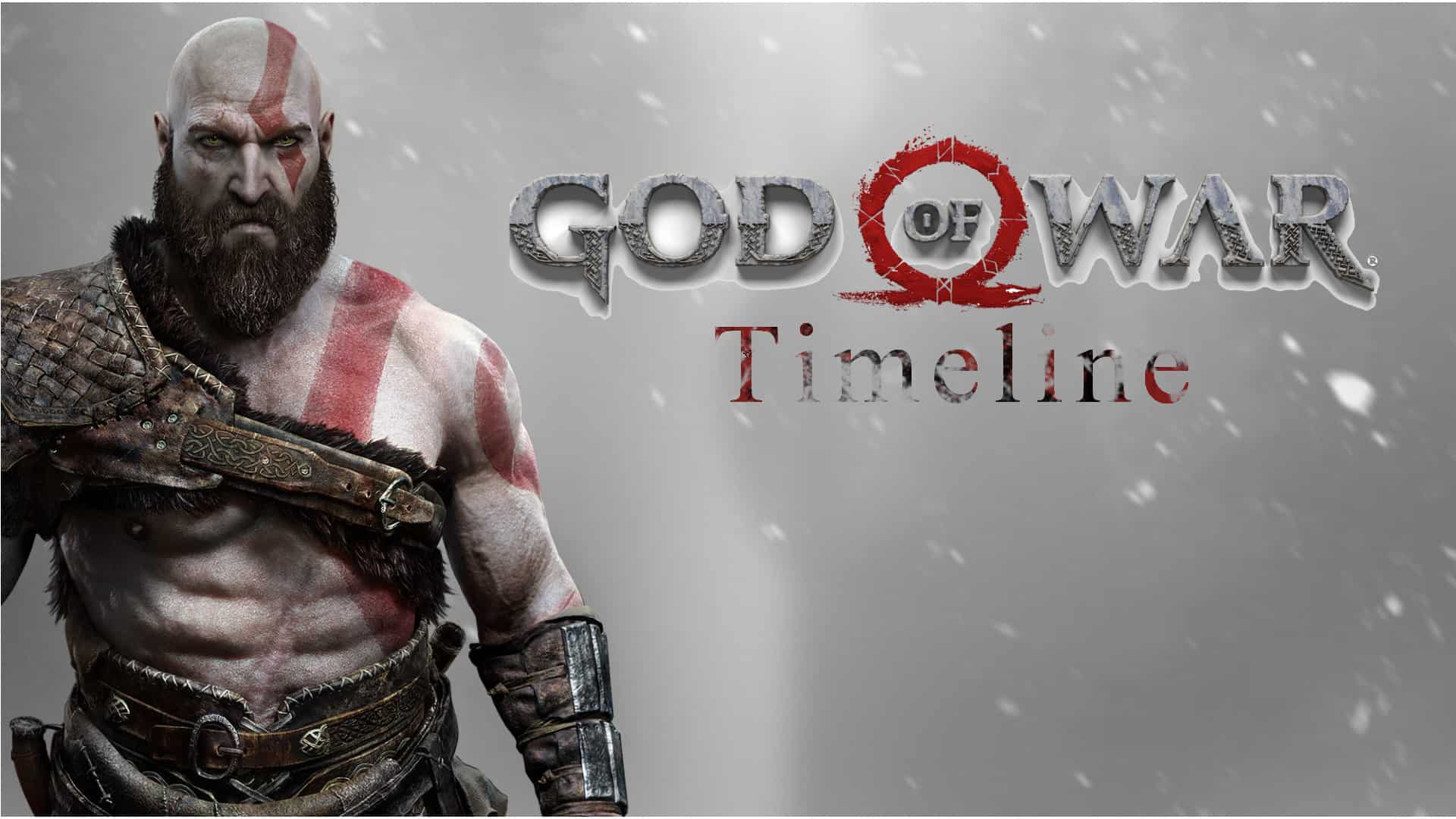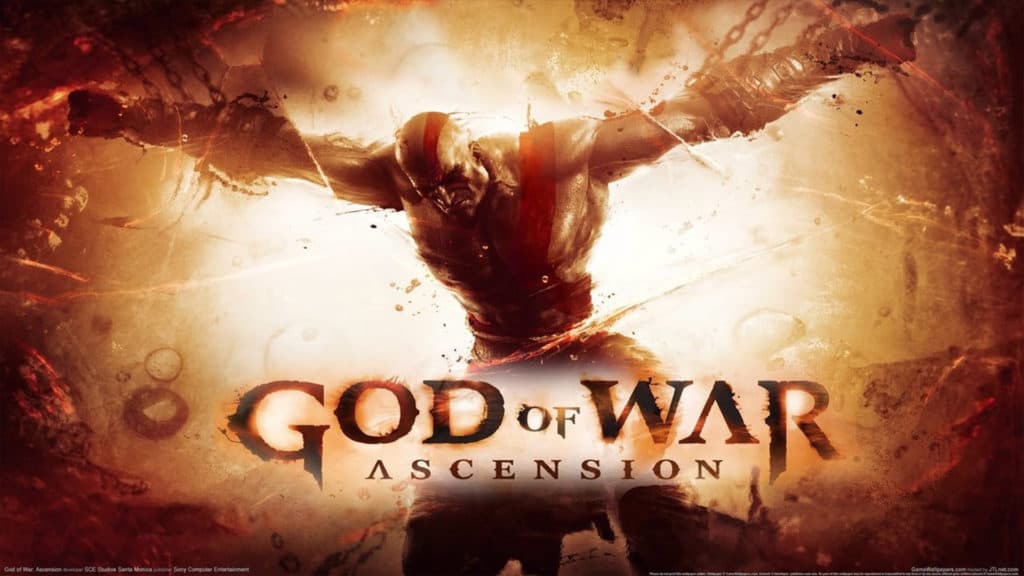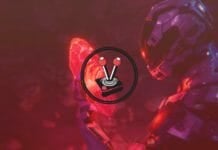Everyone’s favourite God of War is back! This time in a brand-new instalment that took Sony Santa Monica over five years to create. With that said, there are many folks out there who have either not yet played a God of War game, or who have only now become interested in the franchise. As such, there are quite a few people who simply want a rundown of what is going on, and why.
Personally, I would always recommend playing a series in the order it was released. However, Kratos’ journey is a complicated one. Although I still recommend playing through the franchise as the developers intended (in release order), I will be offering a brief chronological breakdown of each part of Kratos’ saga. As such, strap in and grab some popcorn. The time has come to go on a wild ride of god slaying action, betrayal, and the revelations pertinent to one demigod’s journey to find himself and seek revenge on those who wronged him.
For reference, here is the original release order of the games:
- God of War (2005)
- God of War II (2007)
- God of War: Betrayal (2007)
- God of War: Chains of Olympus (2008)
- God of War III (2010)
- God of War: Ghosts of Sparta (2010)
- God of War: Ascension (2013)
While playing the game in chronological order would make much more sense, it does spoil something best left intended to find out as the developers wanted it to (much like Star Wars). That said, and without further ado, let the breakdown begin.
God of War: Ascension
Ascension is undoubtedly the very youngest Kratos will ever be playable in the franchise. The game is set six months before “that fateful day”, when Kratos unintentionally killed his wife and daughter. While technically the seventh instalment in the franchise, it serves as the “first chapter” in the series.
Ascension, which predates Kratos’ entire reign as the god of war, takes place around six months after he unintentionally kills his wife and daughter. In the prologue we learn that the Furies, who have dealigned with the current god of war Ares, have become ruthless under Ares’ guidance. The Furies have formed a plot to overtake Olympus, and all they need now is a “perfect warrior” to help them in their plot. Alecto, the Fury Queen, mated with Ares in the hopes of creating this warrior, but unfortunately the result of this pairing, Orkos, kind of sucked. As a last-ditch effort, Ares employed Kratos, who at the time, was a mumbling mess and emotional wreck. Kratos refused Ares, and as a result, became the ire of the god of war’s anger.
Ares ordered the Furies to capture Kratos. They succeeded in doing so by casting illusions and weakening the Spartan’s mind. Orkos, who was still kind of bummed out that he could not aid his parents, instead aided Kratos. He thus betrayed the Furies and helped Kratos by informing the Spartan that the answer to his freedom could be found in Delphi, with the Oracle Aletheia. After slaying Pollux and Castor, two prophets who had imprisoned the Oracle, it was revealed that Kratos needed to slay the Furies to be free of his bond.
On the journey, Kratos was ambushed and imprisoned once more. by the Furies. One Fury had an exceptional grudge on Kratos for severing her arm in a struggle before the capture and attacked him, unintentionally breaking his chains. Kratos retaliated, and Magaera, the Fury, summoned her parasitic brood to return Aegaeon to life, another Fury. Kratos, the nimble bugger that he was at the time, dodged Aehaeons attack and the Fury accidentally killed Magaera instead. Kratos then fled and eventually came head-to-head with Tisiphone and Alecto, who attempted to lure the Spartan back to Ares’ servitude once more. They managed to do this by taking on the visage of Lysandra. Hey, hot Geek Goddesses are hard to say no to, okay. Fortunately, Kratos eventually saw through their illusion and killed both Furies.
Having killed all Furies, Kratos returned home to Sparta where he and Orkos met up once more. True buds these two. Orkos revealed to Kratos that he had been made, once more, Spartan’s Oath Keeper by the Furies before their death, and as a result, Kratos had to kill Orkos – what a sad realisation! However, Kratos, who did not like Ares one bit, killed Orkos anyway after Orkos accepted his death in honour of their friendship. No wonder the man was as insufferable as he was in later titles!
Anyway, Orkos’ death freed Kratos from his bonds. Yay? Not quite. The murder of his friend started to haunt him with visions of his wife and child – these had always been there, mind you, but they were masked by the bond Ares had placed on him. Now, crippled with Sorrow once more, Kratos burned down his home and Orkos’ corpse.
God of War: Chains of Olympus
After his journey in Ascension, Kratos went on to work for the Gods of Olympus for a good decade. Chains of Olympus takes place during those years. Kratos, seeking redemption for what he did, acts as the lapdog of the gods.
The story begins about halfway through Kratos’ new servitude. Kratos is dispatched to the city of Attica, where he must help defend it from the invading Persian army. During the invasion, Kratos spots a basilisk climbing over the walls and gives chase. During the chase, Kratos comes head-to-head with the Persian King and kills the bloke. Why was the king even there? No tactical mind on that one, I say.
Regardless, in killing the king, Kratos gained the ability to summon Efreet, which he used to finally catch up to the basilisk and kill it. In victory, Kratos saw the sun fall from the sky. While this is a weird thing to happen, it ultimately plunged the world into darkness. Kratos set out to follow the little remaining light there was.
In doing so, the Spartan had to fight his way through the city of Marathon where he encountered the black fog of Morpheus. Kratos had no love for the fog, so he made his way to the Temple of Helios where the statue of Athena (hot hot hot hot) informed him that Helios has disappeared and Morpheus was the cause of the god’s sudden deep slumber. Athena told Kratos he had to retrieve Helios so he could release the gods from Morpheus’ grasp. So, the Spartan did as he was told. I would too, if I were him.
Along the way, Kratos started to become haunted by a song, which he later realised was played by his daughter, Calliope. He paid it little mind, however, and made his way through the Temple of Helios where he encountered Eos, Helios’ sister. She sent him off to the caves within Olympus. She also guaranteed Kratos the gods would relieve him of his nightmares. He also found out that Helios had been held captive by Atlas, the Titan. Kratos did not care much for the goddess’ promise, but he agreed anyway. A bit of an “I’m not doing it for you” moment.
On the way, Kratos managed to restore the fire steeds back to life, who in their gratitude, lead Kratos into the Underworld before they ran away. You cannot blame them — an underworld is a scary place! Kratos met Charon, who offered the Spartan a ride on his ferry upon the River Styx. Charon called Kratos a slave of the gods, and Kratos begrudgingly listened to the old man talk. However, after a short while, Charon told him to go away, Kratos refused, and the two fought. One guess as to who won.
Charon won. Hah, got you there. Anyway, Charon threw Kratos into Tartarus where Kratos witnessed the breaking of the chains that bound Atlas to the pits of the city. Kratos made his way out eventually, where he returned to show Charon the ol’ one-two. With Charon dead, Kratos commandeered the ferry and followed the remaining light of Helios down the river Styx. He ended up at the Temple of Persephone, where he started to see illusions of his daughter.
Upon following the illusions, Kratos bumped into Persephone, the Queen of the Underworld. She told him that Calliope, his daughter, was in the Elysium Fields. She also told him that the only way to see her again was to die… no, that is not right. She told him that the only way to see her again was to “release” his past evils and become worthy of Elysium and give up his powers. Persephone told him that by doing so will have dire consequences. Kratos, being nothing more than a simple Spartan, released his powers into the forsaken tree. Now, without power, weapons, magic and relics, Kratos was once more, a human being. Hey, at least he got to see his daughter, right?
Sort of. While Kratos was revelling in his illusions, Persephone appeared and started to mock the poor guy. This made Kratos very angry and bitter. He felt betrayed by Zeus, tricked by Hades, and abandoned by the gods. She revealed that she was the one who freed Atlas, who was slowly carrying out her plan to destroy the pillar that holds the world. Her ultimate plan was basically suicide — kill everyone, including herself, to be freed. Crazy one, that.
Kratos, who really did not want to see the world end, because deep down he really is a good guy, decided to sacrifice being with his daughter. He regained his powers by killing everyone in Elysium and became once more the Ghost of Sparta. Calliope broke down crying after seeing this, but Kratos had made his decision: if she and the world were to live, they had to separate once more.
With his skills restored, Kratos pressed on where he caught Persephone at the base of the pillar. She gave in, transformed into her true form, and carried Kratos to the top of the pillar where they engaged in a fight. Midway through, Persephone ordered Atlas to kill the Spartan, however, he managed to chain Atlas to the roof of the underworld. Persephone, who lost her one means of killing Kratos, died right on the spot. Well, Kratos did drive the Gauntlet of Zeus through her head as well, but I like to think the shock killed her.
Courtesy of the fight, the pillar was destroyed and the only thing holding the world from collapsing was Atlas. The Titan, however, did not mind one bit and even gloated about the fact. Kratos paid him no mind and set forth once more — now believing that his mission is clear: serving the gods so he can one day be freed from his nightmares. On his way out, Atlas muttered something about the two meeting up for a pint one day. Maybe not for a pint, but you get my drift.
Kratos returned Helios to the sky and the sun was, once more, where it was meant to be. Kratos was tired, however, and ended up falling unconscious from the sun chariot. This is how Kratos ended up on the cliffs he would later jump from, one title on.
God of War
Where it all began. First released in 2005 for the PlayStation 2, God of War follows the story of Kratos, wherein he goes on his journey to seek revenge and become the God of War.
Told in flashback format, just like Ascension, players see Kratos standing atop the tallest cliff in Greece. There, he laments how the gods have abandoned him. Bitter, bruised, and broken, Kratos jumps into the water below.
It is here that the player learns of Kratos’ past. You know, since this was technically the very first game and it does not know that the player has just played through two other games to get here. It tells of how Kratos came into the servitude of Ares, the god of war, and how the gods had betrayed him. It also shows how Kratos was rewarded the Blades of Chaos by Ares, and how the god of war used the blades to conquer in the name of Ares.
The game then shifts to where Kratos became Ares’ servant, where he lead his Spartan army in conquering much of Greece. In one battle, Kratos came to a village that worshipped Athena (hot hot hot hot) where he literally burned it all down. This is when he realised that the village was actually where his wife and daughter lived — explained by Ares as a means of testing his power, and a last-ditch effort to severe the Spartan’s humanity. Uh oh.
As a result, Kratos became intensely bitter. The village oracle cursed him and bound the ashes of his family to his skin. He had now become the Ghost of Sparta. This is where Kratos renounced Ares and started wondering the earth.
Fast forward two games and the player rejoins Kratos where he is approaching the city of Athens. The city, being besieged by Ares’ army, is also where Athena lives. On his way there, however, Ares attacks Kratos’ ship. Kratos subsequently kills the Hydra by impaling its heads. This is where Athena comes in and asks Kratos to help her defend the city from Ares. Kratos agrees, on one condition: that the gods relieve him of his nightmares.
Kratos fights through Ares’ forces where he finds the Oracle of Athens and learns that only Pandora’s Box can give a mortal the power to kill a god. Strange, since Kratos was certain that he had killed gods before, you know, two games ago. Regardless, however, Kratos presses on toward Cronos, the Titan on which Pandora’s Temple was located.
Kratos ventures toward the temple and defeats all who stands in his way. He also evades all traps by the architect of the temple, Pathos Verdes III, and recovers the box. Ares however, senses that this is happening and impales Kratos on a wall. The Ghost of Sparta dies.
Roll credits.
Nah, he comes back. When Kratos proves that he is not mortal after all (that explains him not needing the box earlier), Ares makes a desperate attempt to drive Kratos mad by making him relive his memories. Kratos sees through his illusions, however, and Ares becomes angry. The god of war strips the blades of chaos from Kratos’ arms and kills the illusions one by one with them.
Kratos takes it all in and frees his mind of the illusion. There, he sports a sword which he uses to kill Ares once and for all. Oh the irony (see what I did there?)! Anyway, Kratos is thanked by the various Gods, Athena included, and asks the gods to remove the nightmares. Athena, unfortunately, breaks the news that the nightmares are permanent… the gods can forgive his sins, but that is basically it. Once again, the gods have forsaken him!
Feeling abandoned once more, Kratos finds himself atop the cliffs he was on earlier. This is when he tosses himself over the edge and the flashbacks stop. As Kratos hits the water below, Athena pulls him out and explains that he is a muttering idiot, but he is also a muttering idiot with his own throne now: Kratos is the new God of War.
Roll credits for realsies this time.
God of War: Ghosts of Sparta
God of War: Ghosts of Sparta takes place right after God of War. In this little tale, Kratos ventures to the city of Atlantis (which still stands for now).
At the start, we see the Oracle foretelling that the demise of Olympus would not come from the Titans, but rather a “marked warrior” and a mortal. Three guesses who that is! Anyway, the Olympian gods, Zeus and Ares, believed this warrior to be none other than… Deimos, brother of Kratos. For a bit of context, Deimos had weird birthmarks on his body — the very same tattoos Kratos has had his whole life. More on that later!
Ares lays siege on a village of Sparta, which interrupts the childhood training of Kratos and Deimos. Athena swoops in and kidnaps Deimos while Kratos attempts to stop Ares. Kratos gets thrown aside and receives a nasty gash across his right eye. Ares comes in to finish Kratos off, but fortunately Kratos is saved by a returning Athena, who stops Ares and tells the god of war that they have succeeded in what they came for. Deimos, meanwhile, has been taken to the domain of death, where he will be tortured and imprisoned for many years to come by the god of death, Thanatos.
Now, years later, Kratos — who tattooed his brother’s birthmarks on his body, thinking him dead, has taken Ares‘ place as the new God of War. However, the ‘new god’ still suffers from terrible nightmares. As such, he decides to go on a walkabout, and visits the Temple of Poseidon in the city of Atlantis.
Poseidon was not keen for this new ‘god-buddy’ to over for drinks, you see, so the sea god decided to fake an illness and send the god of war on his way. Well, kind of. Poseidon sent his best minions after the Ghost of Sparta — he even went as far as to call forth Scylla, a terrifying monster, to veer Kratos off course. None of those efforts paid off however, and Kratos made his way into Atlantis anyway.
Once inside, Kratos bumped into his loving mum, who was busy fading from the world. Callisto (that is her name) could not speak very well. She tried to tell Kratos something important but was not able to mutter the words well enough. Mind you, this was a good thing, since it would spoil the big twist later on, but let’s not tell Callisto that. Instead, Callisto did manage to inform her son that Deimos had never been killed. She instructs him to go to death’s domain, where Deimos lies captured and tortured… but not before going to Ares’ temple in Sparta.
Kratos agreed and saw his mom almost die when she suddenly transformed into a hideous beast, hellbent on killing him. Kratos, forced to kill his mother, did not have any of it, and vowed to find Deimos. On his way out, Kratos encountered Thera, a trapped Titan. He freed her, which caused a massive flood to wash over the city and crush it beneath the waves. I guess now we know why Atlantis sunk. Kratos also bumps into the Grave Digger again. While the two did not say much, the grave digger did warn Kratos to not alienate the gods. Weird, seeing as they captured and tortured his brother, caused him to kill his own family, and betrayed him to no end in the past. Must be a pacifist.
Kratos traveled toward the Temple of Ares. along the way, he made a pitstop at Aronia Pass. There, he met Erinys, Thanatos’ daughters and outright killed her. Finally in Sparta, Kratos recognises that he is praised by all. People are blessing him left, right, and centre, and a group led by “the last spartan” even tears down a statue of Ares, in Kratos‘ name. Kratos, bemused, heads toward the jails of sparta, where he hunts down a dissenter of Ares. The dissenter released the Piraeus Lion in the hopes that it would kill a god, but that does not go down too well for both the Lion and the dissenter.
With that out of the way, Kratos heads back to the temple – for real this time. Once there, he has a small encounter with a younger version of himself who tells him that he must return to Atlantis, where the gateway to the domain of death lies. Kratos picks up his former weapons, the Arms of Sparta (a gift form the last spartan) and leaves on his merry way.
As he nears Atlantis, Kratos‘ ship is besieged by Poseidon, who is very angry that his city is destroyed. Kratos‘ ship sinks, and his crew dies a watery death. After nearly drowning, a statue of Poseidon comes to life and tells the god of war that he will pay for what he has done. Kratos escapes and explores the city ruins where he locates the gateway he was looking for.
As he enters death’s domain, Kratos explores some more and eventually finds and frees his imprisoned brother. The little bugger, however, just yells at Kratos for not rescuing him sooner. Talk about ungrateful! Deimos lunges toward Kratos, however death himself, Thanatos, intervenes and takes Deimos to the suicide bluffs where he almost falls off a cliff. Kratos saves him once more and the two reconcile. Geez, this is worse than that one Korean Drama that I watch.
After all of that, Kratos hands the Arms of Sparta to his brother, and the two of them fight Thanatos together. During the fight, Thanatos transforms into a monster and kills Deimos. This causes Kratos to go into his super strong rage mode, which he uses to kill Thanatos. Kratos then carries his brother up the mountain, where he bumps into the grave digger once more. The grave digger seemed to expect Kratos, as he had already prepared a grave. They bury Deimos and Kratos sets the Arms of Sparta as a grave marker. Kratos goes back to the suicide bluffs where he ponders suicide.
Kratos, who has rightfully had a real bad day, asks himself what he has become, and the grave digger, who had followed him down, simply answers with “death, of course. Just look around, mate!” or something to that effect. Kratos is surprised when the grave digger disappeared to be replaced by Athena. The goddess, who I suppose also heard the question, tells Kratos that he is now ready to be a proper god — that with his brother dead, he has no more mortal ties. Athena then tries to elevate Kratos into proper godhood, only to have the Spartan reject her offer. There is only one way to elevate this bloke, and gaining immortal powers is not one!
Athena, all pouty, watches as Kratos walks off, mumbling something about the gods seeing their demise. Just as the man is out of earshot, Athena whispers: “forgive me, brother”, as the screen… woah wait. Kratos and Athena are siblings? So Kratos is a real god after all?! Why did no one tell me this? #JustKidding #ITotallyKnewHeWasAGod #SorryNotSorry
God of War II
God of War II is probably the strongest title in the original, Ancient Greece-spanning series. It takes place shortly after Ghost of Sparta, where Kratos, after defeating (read: killing gruesomely) Thanatos, has become the new God of War.
Kratos, who is still haunted by the memories of his past, now finds enjoyment by doing what he does best: killing people and destroying cities. The game begins with Kratos, who is laying Siege across much of Greece. Athena whines and moans, pleading for Kratos to stop; that she cannot protect him from the ire of the other gods for much longer. Kratos grunts that he owes her nothing and then carries on to join his Spartans in the battle of Rhodes.
Kratos uses his new-found power to devastate Rhodes. However, not long into the siege, he notices an Eagle, whom he believes is Athena in disguise. Even with that knowledge, the bird still manages to rob him of his godly strength and height, infusing both those things into the Colossus of Rhodes, bringing it back to life.
Kratos, who obviously would not have any of it, fought the Colossus all across the city, destroying it in the process. Zeus comes down and offers Kratos the Blade of Olympus, which the god of gods himself used to defeat the Titans in the Great War. At his behest, Kratos infuses the Blade with his godhood, which makes him mortal… again. Thankfully, however, the newly infused blade allows Kratos to kill the Colossus in a sweeping blow. Kratos, being the badass that he is, gets crushed by the falling Colossus, yet lives. Barely.
Kratos realises that he needs to retrieve the Blade of Olympus once more to regain his strength. However, Zeus steps into the picture and reveals that he was the bird all along and that it was just a ruse to strip him of his power! Zeus stabs Kratos and drives the Blade of Olympus into his chest. Kratos, dying, mumbles something about visiting Hades once more… or so I would like to think.
As Kratos is dragged into the Underworld, a Titan named Gaia swoops in to save him. Here we find out that Gaia was not only the series narrator all this time, but also the mother of the Titans. She offers a recovering Kratos an alliance and begins to tell the story of how Zeus came to detest the Titans. Queue the sepia filter, we are going back!
You see, Cronos, Zeus’ father, ate all of his children to prevent a prophecy that one of his children would rise against him. Gaia also tells how Rhea, Zeus’ mother, saved him while he was but a little babe by sending him away to an island. An island that was really Gaia, who is also Zeus’ grandmother. There, Gaia nurtured Zeus until he grew to be a man and sought revenge against Cronos and the other Titans. Thus, the Great War between the gods and Titans commenced.
Zeus, struggling to keep up with the immense power of the Titans, created a powerful weapon called the Blade of Olympus. The god of gods used the Blade to end the Great War and banish all the Titans to the depths of Tartarus; where they would be subjected to ridicule via punishment and humiliation. Since then, the Titans vowed to exact revenge… and now they have Kratos to ask for help.
Back in the present, Gaia asks Kratos to find the Sisters of Fate, who will allow him to change his past and avert his betrayal. She gives Kratos the magical horse, Pegasus, which allows him to escape the Underworld and fly toward the ill-fated Sisters.
Their first stop takes them to a mountain where the Titans Typhon and Prometheus reside. There, they are ambushed by Griffins and Ravens, aided by the Dark Rider. The Dark Rider rams into Kratos and the Pegasus, sending the flying horse to plummet to his death. Fortunately, Kratos counters the Dark Rider and jumps onto the Dark Griffon. There, he kills the Dark Rider using the Spear of Destiny. Unfortunately, the Griffon also goes down in the process, which leaves Kratos to dive to the Island of Creation below.
As Kratos explores the island to find a way off, he encounters Theseus once again. Naturally, Kratos kills Theseus and gains the Horse Keeper’s Key and the Seeds of Time. Perseus bumps into Kratos next, but he was no match for the Ghost of Sparta, who basically ripped him apart. From his remains, Kratos took the reflective shield. The third bloke Kratos bumped into was the ship captain from the first game, and his buddy, the Barbarian King — both of whom shared short lives in the first title. Kratos makes quick work of them and takes the Barbarian Hammer as a keepsake. He also encounters Icarus, who was haggard and crazed. After killing the man, Kratos pulled off his wings and took them for himself before heading toward the Gorgon Queen Euryale, who he decapitated for her head. I suppose Kratos must be a trophy hunter or something.
Kratos jumps off the Island and onto the Titan Atlas (remember him?), below the earth. Atlas, who resents Kratos, refuses to help the Spartan. Kratos, who is the sweet talker, manages to change Atlas’ mind so that he can help him change his fate and destroy Zeus once and for all. Atlas accepts the offer and grants Kratos a new power called Atlas Quake. The Titan then helps him back to the surface where the Spartan continues on his journey.
Kratos does not get far before he is interrupted by the Kraken — which he kills. He then wakes the Phoenix and uses it to fly toward the Temple of Fates, where the sisters live. When he finally gets there, Kratos heads straight toward the throne room, where he tells the sisters of his desire to change fate and kill the god of gods. Obviously, it does not go off too well, and the sisters deny Kratos the ability to change his fate. Kratos, who is angry that he came all this way for nothing, confronts Lahkesis, one of the sisters.
During a long and gruesome battle, Kratos witnesses how the middle sister, Atropos, comes forth, from inside the defeated Lahkesis. There, Atropos takes Kratos back to where Kratos defeated Ares. Planning on cutting his life way shorter than it actually was by destroying the Blade of the Gods. Kratos intervenes, however, and defends the Blade of the Gods. He defeats Atropos and is thrown back to the future (which is technically the present) and traps Atropos in a mirror. Once back, Kratos now has to fight both Atropos and Lahkesis at the same time. He manages to stab them where it matters most, and destroys the mirror he trapped them in, effectively erasing them from existence.
With the first and middle sister gone, Kratos makes his way toward Clotho, the last sister. Clotho, who operates and defends the Loom of Fate, can rule over the lives of mortals and gods alike — naturally, she would not want it in the hands of Kratos. After another fight, Kratos pins her hands to the ground and kills her in a final blow. Kratos, now in control of the Loom, goes back in time to where he died at the hands of Zeus in Rhodes.
There, Kratos saves his past self and reclaims the Blade of Olympus from a surprised Zeus. The two then duke it out head-to-head for quite some time.
At the end of the fight, Zeus manages to stun Kratos with a powerful lightning storm. Kratos begrudgingly mumbles that he surrenders. Zeus, the gullible fool, turns lax as he swings his blade. The lack of focus allows Kratos to send a shockwave out, which pins Zeus’ hands to the rock, along with the Blades of Athena. Kratos then takes the Blade of Olympus and begins to push it through Zeus’ chest.
Just before the blade goes in entirely, Athena arrives to defend Zeus. Kratos, rightfully angry that she interferes, asks her what the hell her intentions are. Athena explains that, her place is with Olympus, and that she intends to defend it, at all costs. This little squabble allows Zeus to attempt an escape — the god of gods manages it successfully, but not before promising that Kratos has started a war he cannot possibly win.
Kratos however, manages to break free from Athena, and charges toward Zeus with the Blade of Olympus. Athena then sacrifices herself by impaling herself on the blade, granting Zeus the time he needs to get away.
Kratos, who cannot understand Athena’s actions, asks her why she did what she did. Athena explains that her intention had always been to break the cycle of son killing father. She explains that going all the way back to Cronos defeating Uranus, and Zeus killing Cronos, the cycle continues… Kratos killing Zeus would be the next step to fulfil the cycle. This finally confirms Kratos’ status as a true god… a god that is also Zeus son. Cannot say I saw that one coming!
After the revelation, Kratos turns back to Athena with a newfound darkness in his eyes. He snarls… yes, literally, that he has no father. Athena, with her dying breath, says that all the gods in Olympus will deny the god of war and defend Zeus. Kratos vows that he will exact retribution on Zeus and any god who denies him of his vengeance.
Gaia, who had totally not been there all this time, reminds Kratos that he still has the power to control time. Kratos then returns to the collapsing room which houses the Loom. There, he uses it to go back in time once more. All the way back to the Great War. He calls to Gaia and she announces that the Titans were expecting him. Kratos explains to the others that they can win the Great War, but only in the time that he comes from.
While Kratos and the Titans return to present-day Olympus, Zeus rallies the gods. Now, the two sides are set up to battle it out for what is, essentially, the very last time. The Titans immediately start the battle whilst Kratos shouts “Zeus! Your son has returned… I bring the destruction of Olympus”!
And so, the game leads directly into God of War III
God of War III
God of War III! Now this is a doozy. It is simultaneously the end, and also not. You know, because corporates needed to have several more games released that only mess up the chronological order of it all; but I digress. God of War III starts pretty much exactly where II ended, what with the Titans all back to the future, climbing Mount Olympus and the like.
The game starts with a narration from the god of gods, Zeus, telling us about the actions of his “infidel” son, Kratos, who now commands a small army of Titans rescued from the Great War long ago. The Olympians immediately rush into battle to protect their home.
Helios rides his chariot over Olympus, while Hermes speeds down the very peaks of the mountain; Hercules receives word that he must lead his troops into the fray and Hades lunges off and engages the Titans below in his own Giant form. Meanwhile, Poseidon is also back with a vengeance — the sea god uses his water magics to shoot down Epimetheus, and then manifests himself as a massive water being who can spawn water horses called Hippocampi to aid the other gods. Kratos, being a war veteran and decorated Spartan, decides that Poseidon is — quite clearly — the greatest threat for the Titans’ push up the mountain, and goes after the sea god. Kratos manages to draw Poseidon out of his godly water form and onto a separate platform where the two briefly battle it out. Kratos defeats the lord of the sea by gauging out the sea god’s eyes and snapping his neck; tossing him back into the ocean to sleep with the now-possibly dead fishes. I say possibly dead because Poseidon’s death ultimately messed up every single drop of water in Greece.
With the sea out of control and sea levels rising wildly, almost all of humanity dies. The only ones left are the beings still on Mount Olympus. I wonder if time travel can undo that little… accident. With Poseidon out of the battle, Kratos and Gaia make their way up to Zeus’ pavilion where the god of gods awaits their arrival. Zeus lashes out with a big blast of lightning that pretty much decemates Gaia‘s arm and sends the two spiraling down Olympus. Kratos manages to barely hold on as he uses the Blade of Olympus to stab into Gaia‘s back and hold on. However, Gaia is unable to hang on herself… or so it seems. Gaia reveals to Kratos that he was a pawn all along and that she can now defeat Zeus without problems. Kratos falls to his death in the water very far below…
Yes. He dies again. Yes, he comes back. Again.
Kratos stumbles around in the caverns of the River Styx. Embittered and in pain, he contemplates the meaning of his life and why he must suffer as he does. In the end however, he manages to talk himself straight and encourages himself to escape Hades and destroy Zeus once and for all.
He makes his way to Hades’ chamber, sucking the power out of all lost souls he can find on the way. Once there, he is reunited with a newly-formed Athena who claims to have reached “new levels of existence”. I want whatever she is having! Whatever it is, Athena vows to help destroy Zeus by granting the Ghost of Sparta new weapons called the Blades of Exile. She tells him that he must find and extinguish the Flame of Olympus in order to truly defeat Zeus.
Kratos makes his way through Hades, where he meets up with Hephastus, who informs him about the secrets of Olympus and Zeus. He also finds letters and scrolls from all of the people in his past. The poor bloke must only have hate mail by now.
Once he makes his way to the Palace of Hades, he finds the coffin-wed body of Persephone that Hades had restored, and battles the lord of the underworld himself inside a cavern. Hades manages to match Kratos‘ power until Kratos overpowers him and rips off his ugly helmet. Kratos steals his weapons and uses them to rip out Hades‘ own soul, absorbing it and taking the power for himself.
With Hades out of the picture, Kratos manages to escape the underworld and renew his journey ascending Olympus — only this time he must face off with both the Titans, and the gods… who are also at war with each other. This just does not get easier. On the way, Kratos fights with Helios, whom he decapitates and takes his head; pulls of Hermes’ legs and steals the speeding god’s boots; and mercilessly beats Hercules into submission with the Nemean Cestus. Along the way, Kratos also confronts Hera, whos neck he breaks after she insults Pandora — a small childlike creation of Hephaestus, who is also the key to extinguishing the Flames of Olympus and revealing the box’ contents. After this, he encounters Aphrodite and her handmaidens; stabs Cronos in the head with the Blade of Olympus, and impales Hepheastus himself, taking the Nemesis Whip off his body. He finally makes his way to the Flame’s chamber, only to be interrupted by Zeus.
Zeus prevents Pandora from engaging her destiny and battles Kratos. Kratos quickly overpowers the god king however, and bests him in their duel. Kratos, now at the end of his journey suddenly feels merciful. Zeus, who sees this, takes the time to plead with Pandora not to sacrifice herself and become the key to open Pandora’s Box. Kratos becomes angry at this and attacks Zeus in extreme rage — it is only because of the Flame’s sudden dissipation that Kratos stops. Kratos opens the box to see what had happened, only to see that it is empty. Zeus mocks the Spartan and tells him that he had failed once again. The old geezer teleports away in order to recover while Kratos is fuming.
The raging Kratos breaks free and chases Zeus to the back of Gaia, who serves as a platform for the battle. In an effort not to fall off, both Zeus and Kratos flee inside her body. Once in her chest, Kratos and Zeus battle once more. Zeus draws the power from her heart and manages to heal Kratos in the process — I doubt that was the old man‘s plan, but hey, Kratos ain‘t complaining! Kratos, with his newfound energy, impales Zeus with the Blade of Olympus. Only, he also impales Gaia, as the blade strikes through Zeus and into Gaia‘s heart. Everything goes crazy, and the screen fades to black. Kratos awakens as the earth shakes and stirrs. He finds Zeus’ body, impaled on a rock, and pulls the blade out of his body without remorse. Kratos, thinking it finally over, is met with Zeus’ spirit, still alive and well. The spirit attacks and drains Kratos of his willpower, his anger, and fills him with fear and loss. Kratos, now properly near death, shares a last-minute mental journey with the guide of Pandora, whose spirit lives on within him, and begins to abolish the various things that torment his soul. These are also coincidentally the things Zeus is using to torment him.
What do you know! As Kratos slowly overcomes all of it, he grows stronger and his body regains its energy. Kratos eventually recovers and battles it out with the spirit, forcing it back into Zeus‘ body where Kratos beats Zeus to death with his bare hands. He finally did it. Kratos defeated Zeus, and his quest for vengeance came to a close. Athena arrives to congratulate Kratos on his victory and tells him to return home and turn over the power he claimed from Pandora’s box. Kratos one-ups the goddess and tells her that there was nothing inside. She claims that he is lying, as she herself put one of the “most powerful weapons in the world” in there. She demands he returns this power, which rightfully belongs to her. However, as she said that, she realised that the weapon, which ended up being hope, probably infused itself with Kratos while “all the acts of evil” that were let loose by the box probably infused with the gods of Olympus. That explains a lot, actually.
Kratos, who also realised this, still refuses to let go of the power. Instead, he impales himself on the Blade of Olympus, which results in a ray of light shooting into the sky. The light gives all of mankind the power Athena wanted back. She becomes furious, and claims that man will not know what to do with it all. As a last means of defiance, Athena pulls the sword from Kratos‘ body and leaves. He merely states that he owes her nothing, and falls to the ground… ending the game.
POST CREDIT SCENE! OH MY GOSH POST CREDIT SCENE LETS GO!
Nothing. We are treated to an empty platform with blood on it that leads off the edge… Did Kratos try to commit suicide once more? Or did he do it to get away from everything and start all over?
God of War (2018)
And this is where I leave you cold and dry, folks! All we know is that this instalment marks a whole new chapter in the God of War’s life. Sometime between God of War III, and this title, Kratos found out that he was a father to a boy named Atreus. The story is apparently all about finding their way forward in a brand new land based on the backdrop of Norse mythology., but that is the extent of my knowledge!
Having not an inkling of what is going on in this instalment, I will leave it to Hans and his review to light your way.
Junior Editor at Vamers. From Superman to Ironman; Bill Rizer to Sam Fisher and everything in-between, Edward loves it all. He is a Bachelor of Arts student and English Major specialising in Language and Literature. He is an avid writer and casual social networker with a flare for all things tech related.


















![Razer Kraken V3 Pro Review – Welcome to Boomtown [Redux]](https://vamers.com/wp-content/uploads/2022/07/Vamers-Technology-Razer-Kraken-V3-Pro-Review-Banner-218x150.jpg)








![Win With Vamers: God of War Limited Edition [PS4 Only]](https://vamers.com/wp-content/uploads/2018/04/Vamers-Competitions-Win-With-Vamers-God-of-War-2018-Game-Beanie-and-Keychain-100x70.jpg)